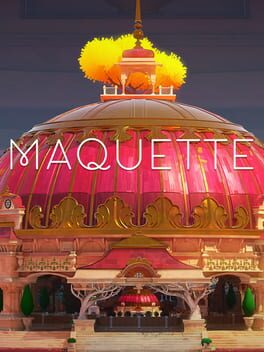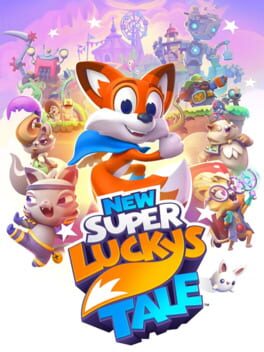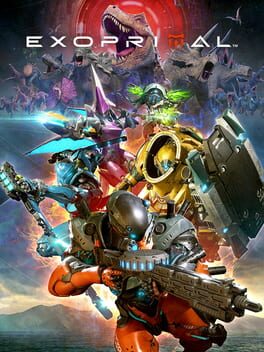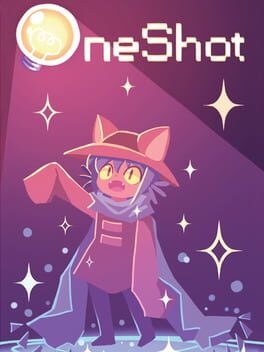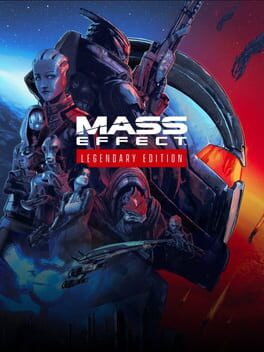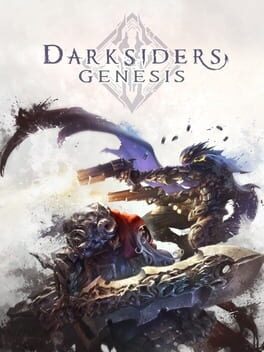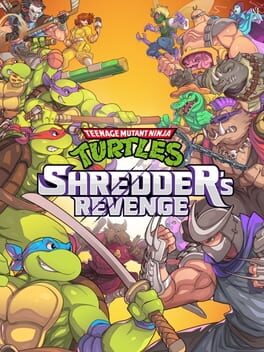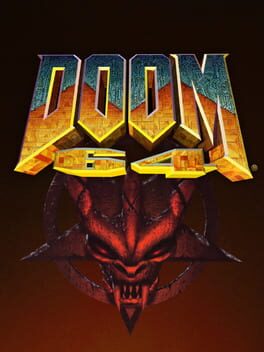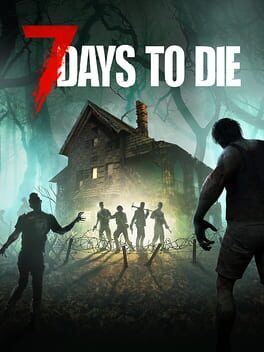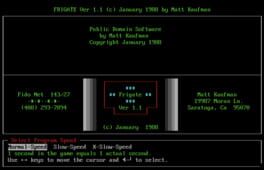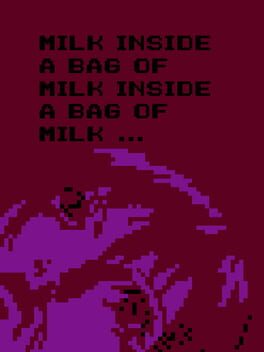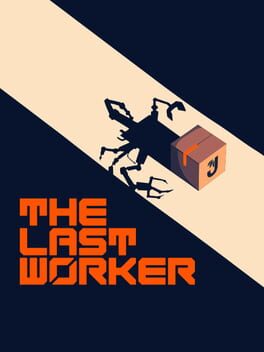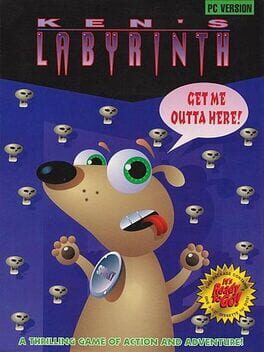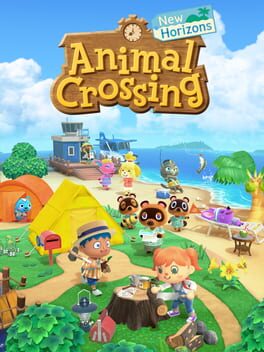cowboyjosh
BACKER
2021
When I solved the first puzzle and it played a super catchy and mellow Meredith Edgar song I was 100% on board: solve a puzzle, get a song! What a great concept! I could hear some rad new licensed indie jams while stroking my brain like it was Donald Pleasance's cat. This excitement lasted for exactly two songs. Unfortunately the puzzles turned frustrating pretty fast, and then they stopped delivering the music altogether, focusing instead on an interpersonal story that didn't grab me.
The main thing I took away from this is what a huge impact licensed music makes on me in a game. Life is Strange is the other big example I can think of where I was immediately drawn in by it. Honestly I wasn't even all that super into the songs; mostly they sounded like something you'd hear at your local coffee shop, but almost as soon as they started I could feel myself becoming more emotionally invested. I guess I'm an easy mark for that stuff; maybe I should seek out more games like this.
The main thing I took away from this is what a huge impact licensed music makes on me in a game. Life is Strange is the other big example I can think of where I was immediately drawn in by it. Honestly I wasn't even all that super into the songs; mostly they sounded like something you'd hear at your local coffee shop, but almost as soon as they started I could feel myself becoming more emotionally invested. I guess I'm an easy mark for that stuff; maybe I should seek out more games like this.
I only played this for Microsoft Reward points on Game Pass, but I was surprised by the first impression of a tight and polished little collectathon mascot platformer. Controls feel really good, the characters are cute and it’s packed with jokes. Nothing seems to be breaking any new ground (at least in the first 30 minutes) but I would definitely stick my little nieces and nephews in front of this for a nice kid-friendly chill time.
2023
I played a little bit of this, but it just felt so aggressively corporate. From the 27 progressively more alarming EULAs they make you sign, to the mandatory Capcom ID, to the in-game currencies, battle pass and loot boxes, to the paint-by-numbers hero shooter cast, everything about this game screams "commerce". When people say "games are art," this isn't the game they're talking about.
All that said, it is nice to see a new IP.
All that said, it is nice to see a new IP.
2016
Thirteen years after starting Mass Effect, I finally finished Mass Effect 3! To be fair, I did restart in 2020, so this series playthrough was really only 3 years.
KotOR and DA:O were both big, big events in my gaming life, and I always considered myself a Bioware fan. I feel like this trilogy is their most ambitious effort yet and the hard work put in is apparent. There are countless locations to visit, aliens to talk to and aliens to shoot. The voice cast has some serious heavy hitters, and the branching, choice-driven plot lines have an impressive amount of interaction and mostly resolve satisfactorily.
The most obvious influences are Star Trek and Battlestar Galactica (particularly the reboot which came out just a few years before). There's a hint of Star Wars as well, although quite a bit less than I expected. It's all weaved together into a space opera of epic scope that leans heavily into Bioware's strengths.
But... none of it really landed for me. Right out of the gate, the opening moments of the first game are a firehose of worldbuilding minutia. It's what I call "top-down" game writing: they've built a massive, exhaustively detailed universe to set these games in and showing off every bit of that universe seems to be the driving force behind the whole endeavor, at the expense of every other part of storytelling. It's like if the opening text crawl at the beginning of Star Wars was 12 hours long.
Codex entries, expositional dialogue, codex entries, PDAs, codex entries, computer consoles and oh did I mention codex entries? This game is obsessed with its own lore and I was drowning in proper nouns before I even left my ship. There's a reason all the alien races in Star Trek are stereotypes. When you only have 43 minutes to tell a story it's helpful to say "Ferengi are greedy and Klingons are brave; now you know the backstory." Star Wars doesn't even bother to tell you anything about its species at all, for the most part, and still managed to showcase some of the most memorable aliens in all of pop sci fi. When you're blasting me with the entire history of several alien races before I've even, like, made a friend in this game it makes it hard to connect and I basically lost traction on the story immediately.
It's different with Dragon Age, because there you've at least got familiar fantasy tropes to lean on. I can walk into a room in any game and pick out the dwarves, elves and halflings. Mass Effect, though, is starting from scratch and needs to do a lot of foundation-setting. Nier: Replicant is in a very similar situation where it's just tripping over itself to tell you about all the nifty ideas it has, but it cleverly gives you a sick little sister at the beginning of the game. I think if Mass Effect had followed suit and offered up something tangible and relatable to care about early on, then sprinkled in the worldbuilding with a little more restraint, it would have given me something to care about, to ground me in the world (or at least something to cling to during those endless lore dumps).
All the actual characters I interacted with felt like plot contrivances who are there just to drive the plot along and throw more high-detail, low-impact information at you. The main cast of each game, your crewmates who can accompany you on missions, get a little bit more development (particularly the ones who show up in all three games), but it's cursory and predictable, rigidly following the formula established in KotOR. Each character has a friendship quest that tells you a little about their backstory and ends with them overcoming whatever misgivings they had about you. That's pretty much it. I think some of them might have romance options; I made a half-hearted attempt at following one of these tracks but nothing came of it. Sometimes the NPCs will interact with each other in inconsequential ways, but it never feels like they have real relationships.
Meanwhile your own character is a complete blank slate with no personality whatsoever. I played as the dark side option which they call "renegade" in this series. It's a weird mishmash of being indecorous in polite company, genocide, sexually harassing your employees, pragmatic murder, and just generally being a dick to your friends. For some reason, doing these things makes your eyes glow orange, which is never remarked upon. Through all of this, though, your character is a total empty suit with no apparent motivation other than "beat the game." There is no character development because your character simply has no personality traits. The avatar emotes occasionally in dialog, but I think because the personality needs to fit with all the disparate narrative branches, they're precluded from making strong choices and my boy ended up with all the depth and charm of a styrofoam wig head.
And then there's the villains. I'm sorry Martin Sheen you really did try your best but the villains of Mass Effect were far and away the weakest element for me. Sheen is just, basically Snidely Whiplash. At the tail end of the third game he has a couple sentences where he tries to justify his cartoonish evilness but it doesn't help. There's a... I want to say cyborg ninja? He's the Darth Maul of this game; he comes out of nowhere, he seems to be designed with edgy tweens in mind and when he's gone it's like "wait, who was that again?" And finally, there's the big bads: an unstoppable force of killer robots who want to wipe out all organic life in the universe. A reason is given for this but I found it unconvincing. Oh yeah and to top it all off they're called... THE REAPERS.
So the entire trilogy of games now has the Fallout 4 problem. Every little side quest and diversion is now distracting you from killer robots trying to destroy all life in the universe. Once you introduce a plot point like that, a few things happen. One is that all the moral choices in the game immediately lose all their weight. Anything, literally anything, is justifiable when the alternative is everything in the universe dies. Another is that I really can't be arsed with all your interminable worldbuilding, I'm sorry. I'm not gonna sit here and read the 50th codex entry about how the Volus feel about the Quarians when you've already established, in the most explicit terms, that none of it matters. I'm not gonna poke through every room in my giant spaceship trying to have feelings time with my crewmates when doing so is delaying me from saving all life in the universe.
There's an entire quest line (I think it's a DLC) where your crew takes a break from their jobs and goes on vacation. Now, this is great for some tonal texture; I think it's awesome that they weren't just throwing us into battle after battle and it was nice to hear some of the characters telling some jokes for a change. But the whole time I'm, like, picking out party music in my fancy apartment at the back of my mind is always "uhhh... universe-ending robots...?"
Besides all of that, I felt like THE REAPERS really hobble the writing. There's only so seriously you can take a story with THE REAPERS. Like, you could have some genuinely touching moments that really tug on the heartstrings (and in spite of everything they do pull out a few of these throughout the trilogy), but whatever nuance or thoughtful mood you managed to evoke evaporates as soon as it's like "Welp, back to THE REAPERS." It's not just a dumb name (but it is a very, very dumb name), it's also just such a flat and childish concept, like something out of a Saturday morning cartoon.
None of this is really helped by the technology limitations. There's a whole shooting part of this game that clearly got a lot of dev attention and as a result the lengthy conversation sections are pretty badly neglected. There are dozens of hours of dialogue that are just the camera cutting between two mannequins moving their jaws up and down. Quality voice acting goes a long way but considering how long you spend in conversation in this game, I really needed a little more stimulation. It made me wonder what this game would be like if they cut out combat entirely and focused completely on the characters and politics, maybe as a visual novel or something.
And yeah, I don't think the combat really added anything to this game. Like the conversation sections, I found it to be pretty half-baked in all three titles. All the pieces are there to make a compelling cover shooter, but they never cohere into a whole that I really enjoyed playing. I mostly played on Hard, adjusting the difficulty down when I'd hit one of the occasional sharp spikes in difficulty. This presented an acceptable level of challenge, with the enemies being much more aggressive, but they also felt really spongey. On Normal difficulty, they were way too squishy and would mostly just sit there. I found myself longing for an in-between option.
It's possible that option was there if I had engaged a little deeper with the customization. The powers, outfits and guns just didn't seem very impactful and nothing drove me to interact with those systems. Long before the end of each game I had maxed out all of my guy's stats. I think at the end of the third game I had like 20 surplus ability points with nothing to spend them on? Every new weapon I tried didn't really seem to change anything about the moment to moment combat, so pretty early on in each game I found a gun I liked and never changed it. Except for the occasional mission where the enemies simply dropped no ammo for some reason? I'm pretty sure this was a bug since it didn't feel like a design choice, but there were a handful of missions where all I could do was deplete my guns one by one until I was stuck running around giving aliens the elbow of death.
It goes without saying that the big brains over at Bioware know a lot more than I do about video game control schemes. But I never could shake the feeling that the button assignments in Mass Effect are a cut and dried mistake. Reload, which I think they could have done without, gets its own face button. Melee attack, which you basically never use, gets a button. Meanwhile, enter cover, exit cover, transfer cover, mantle over cover, dodge roll, pick up an item, interact with an object, open a door and sprint are all assigned to the same button; the game tries to intuit your intention based on contexts like how close you are to cover and what direction you're facing. It could be a skill issue I guess, but I found this overloading of a single button to be a huge problem. I was constantly, constantly diving away from cover when I meant to enter it, or entering cover facing the wrong direction, or entering cover when I meant to be running away.
Even when I was successfully controlling my boy, the combat felt really static and repetitive. There were a few notable exceptions throughout the trilogy, but my memory is that most of the environments were just not very well suited to a cover shooter. Too many of the battlefields were, essentially, hallways, with no real opportunities for flanking or other positional maneuvers.
Cover is also pretty "soft" in these titles as well; usually even when an enemy is fully ducked behind a solid obstruction, you can still manage to shoot them. The enemies' flushing options are also sparse; up until some elite mobs near the end of the game all the rushers are super weak and move in predictable patterns, and I found the grenades to be trivially easy to dodge. My favorite flushers were the invisible guys; they actually got the drop on me a few times and forced some dynamic improvisation that reminded me that cover shooting can really be fun even if it's not as tight as something like Gears or The Division. Most of the time, though, I found myself just dodge-rolling between two safe pieces of cover whenever a grenade came my way, and plinking from a distance until everything was dead.
There were exceptions, of course. A handful of the big, plot-important set pieces were really nicely made, with strategic sightlines, multiple flanking paths and exploitable choke points. Also a lot of really sexy skyboxes in the more epic outdoor battles. It's very apparent that when all the studio's resources were brought to bear, they could really pull together something special.
Unfortunately most of the game takes place in cramped corridors that all kinda look the same. What is it with these games and 45-degree walls? Every planet, every space station, no matter what culture you're in, has these 45 degree ceiling/wall/floor sections. I guess they decided this is what "futuristic" looks like. Another design quirk that threw me off a lot was that everything looks like Star Trek-style far, far future. But the game only takes place like 150 years from now. It felt discordant and given the way the game blasts you with lore, I think it would have been nice to see some more grounded... well anything really. Architecture, clothes, vehicles, music, plot points... anything to help me relate more to this world.
I feel like I'm kind of dumping on these games but I do think they're well made. The ambition on display here is noteworthy and I think it's laudable to take big swings. For me it fell short of that ambition, but they found enough high notes to keep me coming back and I think they basically pulled it off. At the end of the day it's a singular work that, whether boldly or foolishly, tries to tell a story at a scope that few other games will even try to match. I didn't love these games, but I am glad to have experienced them.
KotOR and DA:O were both big, big events in my gaming life, and I always considered myself a Bioware fan. I feel like this trilogy is their most ambitious effort yet and the hard work put in is apparent. There are countless locations to visit, aliens to talk to and aliens to shoot. The voice cast has some serious heavy hitters, and the branching, choice-driven plot lines have an impressive amount of interaction and mostly resolve satisfactorily.
The most obvious influences are Star Trek and Battlestar Galactica (particularly the reboot which came out just a few years before). There's a hint of Star Wars as well, although quite a bit less than I expected. It's all weaved together into a space opera of epic scope that leans heavily into Bioware's strengths.
But... none of it really landed for me. Right out of the gate, the opening moments of the first game are a firehose of worldbuilding minutia. It's what I call "top-down" game writing: they've built a massive, exhaustively detailed universe to set these games in and showing off every bit of that universe seems to be the driving force behind the whole endeavor, at the expense of every other part of storytelling. It's like if the opening text crawl at the beginning of Star Wars was 12 hours long.
Codex entries, expositional dialogue, codex entries, PDAs, codex entries, computer consoles and oh did I mention codex entries? This game is obsessed with its own lore and I was drowning in proper nouns before I even left my ship. There's a reason all the alien races in Star Trek are stereotypes. When you only have 43 minutes to tell a story it's helpful to say "Ferengi are greedy and Klingons are brave; now you know the backstory." Star Wars doesn't even bother to tell you anything about its species at all, for the most part, and still managed to showcase some of the most memorable aliens in all of pop sci fi. When you're blasting me with the entire history of several alien races before I've even, like, made a friend in this game it makes it hard to connect and I basically lost traction on the story immediately.
It's different with Dragon Age, because there you've at least got familiar fantasy tropes to lean on. I can walk into a room in any game and pick out the dwarves, elves and halflings. Mass Effect, though, is starting from scratch and needs to do a lot of foundation-setting. Nier: Replicant is in a very similar situation where it's just tripping over itself to tell you about all the nifty ideas it has, but it cleverly gives you a sick little sister at the beginning of the game. I think if Mass Effect had followed suit and offered up something tangible and relatable to care about early on, then sprinkled in the worldbuilding with a little more restraint, it would have given me something to care about, to ground me in the world (or at least something to cling to during those endless lore dumps).
All the actual characters I interacted with felt like plot contrivances who are there just to drive the plot along and throw more high-detail, low-impact information at you. The main cast of each game, your crewmates who can accompany you on missions, get a little bit more development (particularly the ones who show up in all three games), but it's cursory and predictable, rigidly following the formula established in KotOR. Each character has a friendship quest that tells you a little about their backstory and ends with them overcoming whatever misgivings they had about you. That's pretty much it. I think some of them might have romance options; I made a half-hearted attempt at following one of these tracks but nothing came of it. Sometimes the NPCs will interact with each other in inconsequential ways, but it never feels like they have real relationships.
Meanwhile your own character is a complete blank slate with no personality whatsoever. I played as the dark side option which they call "renegade" in this series. It's a weird mishmash of being indecorous in polite company, genocide, sexually harassing your employees, pragmatic murder, and just generally being a dick to your friends. For some reason, doing these things makes your eyes glow orange, which is never remarked upon. Through all of this, though, your character is a total empty suit with no apparent motivation other than "beat the game." There is no character development because your character simply has no personality traits. The avatar emotes occasionally in dialog, but I think because the personality needs to fit with all the disparate narrative branches, they're precluded from making strong choices and my boy ended up with all the depth and charm of a styrofoam wig head.
And then there's the villains. I'm sorry Martin Sheen you really did try your best but the villains of Mass Effect were far and away the weakest element for me. Sheen is just, basically Snidely Whiplash. At the tail end of the third game he has a couple sentences where he tries to justify his cartoonish evilness but it doesn't help. There's a... I want to say cyborg ninja? He's the Darth Maul of this game; he comes out of nowhere, he seems to be designed with edgy tweens in mind and when he's gone it's like "wait, who was that again?" And finally, there's the big bads: an unstoppable force of killer robots who want to wipe out all organic life in the universe. A reason is given for this but I found it unconvincing. Oh yeah and to top it all off they're called... THE REAPERS.
So the entire trilogy of games now has the Fallout 4 problem. Every little side quest and diversion is now distracting you from killer robots trying to destroy all life in the universe. Once you introduce a plot point like that, a few things happen. One is that all the moral choices in the game immediately lose all their weight. Anything, literally anything, is justifiable when the alternative is everything in the universe dies. Another is that I really can't be arsed with all your interminable worldbuilding, I'm sorry. I'm not gonna sit here and read the 50th codex entry about how the Volus feel about the Quarians when you've already established, in the most explicit terms, that none of it matters. I'm not gonna poke through every room in my giant spaceship trying to have feelings time with my crewmates when doing so is delaying me from saving all life in the universe.
There's an entire quest line (I think it's a DLC) where your crew takes a break from their jobs and goes on vacation. Now, this is great for some tonal texture; I think it's awesome that they weren't just throwing us into battle after battle and it was nice to hear some of the characters telling some jokes for a change. But the whole time I'm, like, picking out party music in my fancy apartment at the back of my mind is always "uhhh... universe-ending robots...?"
Besides all of that, I felt like THE REAPERS really hobble the writing. There's only so seriously you can take a story with THE REAPERS. Like, you could have some genuinely touching moments that really tug on the heartstrings (and in spite of everything they do pull out a few of these throughout the trilogy), but whatever nuance or thoughtful mood you managed to evoke evaporates as soon as it's like "Welp, back to THE REAPERS." It's not just a dumb name (but it is a very, very dumb name), it's also just such a flat and childish concept, like something out of a Saturday morning cartoon.
None of this is really helped by the technology limitations. There's a whole shooting part of this game that clearly got a lot of dev attention and as a result the lengthy conversation sections are pretty badly neglected. There are dozens of hours of dialogue that are just the camera cutting between two mannequins moving their jaws up and down. Quality voice acting goes a long way but considering how long you spend in conversation in this game, I really needed a little more stimulation. It made me wonder what this game would be like if they cut out combat entirely and focused completely on the characters and politics, maybe as a visual novel or something.
And yeah, I don't think the combat really added anything to this game. Like the conversation sections, I found it to be pretty half-baked in all three titles. All the pieces are there to make a compelling cover shooter, but they never cohere into a whole that I really enjoyed playing. I mostly played on Hard, adjusting the difficulty down when I'd hit one of the occasional sharp spikes in difficulty. This presented an acceptable level of challenge, with the enemies being much more aggressive, but they also felt really spongey. On Normal difficulty, they were way too squishy and would mostly just sit there. I found myself longing for an in-between option.
It's possible that option was there if I had engaged a little deeper with the customization. The powers, outfits and guns just didn't seem very impactful and nothing drove me to interact with those systems. Long before the end of each game I had maxed out all of my guy's stats. I think at the end of the third game I had like 20 surplus ability points with nothing to spend them on? Every new weapon I tried didn't really seem to change anything about the moment to moment combat, so pretty early on in each game I found a gun I liked and never changed it. Except for the occasional mission where the enemies simply dropped no ammo for some reason? I'm pretty sure this was a bug since it didn't feel like a design choice, but there were a handful of missions where all I could do was deplete my guns one by one until I was stuck running around giving aliens the elbow of death.
It goes without saying that the big brains over at Bioware know a lot more than I do about video game control schemes. But I never could shake the feeling that the button assignments in Mass Effect are a cut and dried mistake. Reload, which I think they could have done without, gets its own face button. Melee attack, which you basically never use, gets a button. Meanwhile, enter cover, exit cover, transfer cover, mantle over cover, dodge roll, pick up an item, interact with an object, open a door and sprint are all assigned to the same button; the game tries to intuit your intention based on contexts like how close you are to cover and what direction you're facing. It could be a skill issue I guess, but I found this overloading of a single button to be a huge problem. I was constantly, constantly diving away from cover when I meant to enter it, or entering cover facing the wrong direction, or entering cover when I meant to be running away.
Even when I was successfully controlling my boy, the combat felt really static and repetitive. There were a few notable exceptions throughout the trilogy, but my memory is that most of the environments were just not very well suited to a cover shooter. Too many of the battlefields were, essentially, hallways, with no real opportunities for flanking or other positional maneuvers.
Cover is also pretty "soft" in these titles as well; usually even when an enemy is fully ducked behind a solid obstruction, you can still manage to shoot them. The enemies' flushing options are also sparse; up until some elite mobs near the end of the game all the rushers are super weak and move in predictable patterns, and I found the grenades to be trivially easy to dodge. My favorite flushers were the invisible guys; they actually got the drop on me a few times and forced some dynamic improvisation that reminded me that cover shooting can really be fun even if it's not as tight as something like Gears or The Division. Most of the time, though, I found myself just dodge-rolling between two safe pieces of cover whenever a grenade came my way, and plinking from a distance until everything was dead.
There were exceptions, of course. A handful of the big, plot-important set pieces were really nicely made, with strategic sightlines, multiple flanking paths and exploitable choke points. Also a lot of really sexy skyboxes in the more epic outdoor battles. It's very apparent that when all the studio's resources were brought to bear, they could really pull together something special.
Unfortunately most of the game takes place in cramped corridors that all kinda look the same. What is it with these games and 45-degree walls? Every planet, every space station, no matter what culture you're in, has these 45 degree ceiling/wall/floor sections. I guess they decided this is what "futuristic" looks like. Another design quirk that threw me off a lot was that everything looks like Star Trek-style far, far future. But the game only takes place like 150 years from now. It felt discordant and given the way the game blasts you with lore, I think it would have been nice to see some more grounded... well anything really. Architecture, clothes, vehicles, music, plot points... anything to help me relate more to this world.
I feel like I'm kind of dumping on these games but I do think they're well made. The ambition on display here is noteworthy and I think it's laudable to take big swings. For me it fell short of that ambition, but they found enough high notes to keep me coming back and I think they basically pulled it off. At the end of the day it's a singular work that, whether boldly or foolishly, tries to tell a story at a scope that few other games will even try to match. I didn't love these games, but I am glad to have experienced them.
2019
What a hoot! For me, a child of the 80s, the Turtles were a symbol of budding maturity, poking through the eggshell of more childish fare and squinting into the bright light of “young adult” programming. Before Turtles I was into Belle and Sebastian and David the Gnome. After, it was all Captain Power and You Can't Do That on Television. The Turtles felt subversive at the time; they used weird slang, they had an attitude and they were gross teenagers who lived in the sewer.
It was a big tonal contrast with the Filmation and Hanna-Barbara tripe that was all over Saturday mornings at the time… and of course the rest is history. The Turtles were everywhere, and even as a kid who was generally clueless about pop culture, it penetrated my bubble and was a big part of my childhood. I wasn’t nearly cool enough to have been ahead of the curve with the comics, but I watched the show, played with the action figures the show was a commercial for, and eventually even saw the movie in the theater (I was really taken aback by the cuss words). It probably had a bigger cultural impact than anything else that I’ve been super into when it was current.
But until picking this game up, I never thought about the Turtles as an adult. So it’s like my nostalgia has been perfectly preserved, NIB, just waiting for something to crack it open. And this game sure did that! Like a laser guided nostalgia bomb right to the heart… Hmm a violence metaphor doesn’t feel right. It’s more like a custom-tailored multi-headed nostalgia dildo that perfectly tickles all the right memories.
Every new villain that popped up had me going “oh yeah THAT guy!” The colors were great, the characters are all nice and distinct, and best of all it was just a robust, great-feeling beat-em-up moveset. Pun intended: It just feels punchy. Dodge roll, yes please; sprint, must have; double jump!? Is it my birthday? My ninth birthday?!
Obviously I’m completely incapable of rendering a verdict on this game on account of how it has won my heart with its gift of precious forgotten memories. I will say I didn’t care for some of the voices, but what they lacked in gravitas they made up for in enthusiasm, and honestly that’s really about all the criticism I can muster. This was clearly made by masters of their craft with a strong love for the source material.
They say the act of remembering is actually a creative process; that each time you recall a memory you change it a bit. That the most intact memories are the ones that have been least frequently accessed. This is a game I’ll definitely be coming back to. But, maybe, not too often.
It was a big tonal contrast with the Filmation and Hanna-Barbara tripe that was all over Saturday mornings at the time… and of course the rest is history. The Turtles were everywhere, and even as a kid who was generally clueless about pop culture, it penetrated my bubble and was a big part of my childhood. I wasn’t nearly cool enough to have been ahead of the curve with the comics, but I watched the show, played with the action figures the show was a commercial for, and eventually even saw the movie in the theater (I was really taken aback by the cuss words). It probably had a bigger cultural impact than anything else that I’ve been super into when it was current.
But until picking this game up, I never thought about the Turtles as an adult. So it’s like my nostalgia has been perfectly preserved, NIB, just waiting for something to crack it open. And this game sure did that! Like a laser guided nostalgia bomb right to the heart… Hmm a violence metaphor doesn’t feel right. It’s more like a custom-tailored multi-headed nostalgia dildo that perfectly tickles all the right memories.
Every new villain that popped up had me going “oh yeah THAT guy!” The colors were great, the characters are all nice and distinct, and best of all it was just a robust, great-feeling beat-em-up moveset. Pun intended: It just feels punchy. Dodge roll, yes please; sprint, must have; double jump!? Is it my birthday? My ninth birthday?!
Obviously I’m completely incapable of rendering a verdict on this game on account of how it has won my heart with its gift of precious forgotten memories. I will say I didn’t care for some of the voices, but what they lacked in gravitas they made up for in enthusiasm, and honestly that’s really about all the criticism I can muster. This was clearly made by masters of their craft with a strong love for the source material.
They say the act of remembering is actually a creative process; that each time you recall a memory you change it a bit. That the most intact memories are the ones that have been least frequently accessed. This is a game I’ll definitely be coming back to. But, maybe, not too often.
2020
I’m really glad I came back to finish this; I liked it a lot better the second time around. I think this is a really solid entry that carries forward a lot of what made id’s Dooms great while also carving out its own identity.
The level design is really impressive and the music keeps the atmosphere up. The art style never really grew on me, but it definitely fits with the game’s overall aesthetic.
I’m really stoked that this was ported to modern consoles. It’s a hell of a Doom!
The level design is really impressive and the music keeps the atmosphere up. The art style never really grew on me, but it definitely fits with the game’s overall aesthetic.
I’m really stoked that this was ported to modern consoles. It’s a hell of a Doom!
2013
Honestly I didn't really engage with this game's systems because the immediate impression was so off-putting. Console controls are just PC controls but you have to push the mouse cursor around with your thumbstick. The draw distance is about 20 feet; even with absurd levels of fog you’re constantly watching the environment pop in. Everything is monochromatic and generally ugly, the UI is too small to read and it seems to have a really inconsistent framerate.
1988
Frigate is quite a remarkable game: a real-time/turn-based hybrid ship battle simulator made entirely in a text UI. Radar and sonar contacts are tracked with headings and distances, navigation is via manual coordinate input or relative to your targets and you're constantly outnumbered and outgunned. There's a fair bit of strategic depth as well; ammo is limited, radar can be jammed and damage to the ship impacts the ship's systems.
Going back to replay the game on archive.org it brings it all back, but in such a discordant way. I remember finding these battles so exciting and so clearly visualizing the play field and the action and now it's like hey fun spreadsheet. Clearly baby Josh had a much more vivid imagination (and smoked a lot less grass... a robust short-term memory is a critical skill here).
I guess I can't really recommend this now unless you're really into text-based games or milsim stuff, but boy did I have hours of fun with Frigate.
Going back to replay the game on archive.org it brings it all back, but in such a discordant way. I remember finding these battles so exciting and so clearly visualizing the play field and the action and now it's like hey fun spreadsheet. Clearly baby Josh had a much more vivid imagination (and smoked a lot less grass... a robust short-term memory is a critical skill here).
I guess I can't really recommend this now unless you're really into text-based games or milsim stuff, but boy did I have hours of fun with Frigate.
Cool story. Love seeing these more informed and nuanced portrayals of mental health struggles. I like the role this game foists on you, and that it doesn’t waste the player’s time (at least my playthrough was super effing short which is, like, yes please more of that, games). I didn’t care for the amount of typing I had to do on my Switch, and the music was piercingly loud.
2023
Creatively very cool; I love the story and art and the acting is great. Unfortunately the game just keeps hanging on my Series X, and only when saving a checkpoint. And of course, when this happens the checkpoint isn’t saved and I have to go back and replay a substantial amount of content, none of which is skippable. Too much of this just wore out my patience. Maybe I’ll revisit it in a year or two and see if they’ve fixed it.
2023
1993
I played the shareware version of this when I finally got bored with Wolf3D and Spear of Destiny. I didn't stick with it very long because it's a pretty rough time. This was my first experience with a noticeably low-budget game. It gives the strong impression of being a one-person operation, which I'm pretty sure it is (update: it totally is; in fact the titular Ken is Ken Silverman, who just a couple years later brought us the Build engine).
The one standout feature I remember was interactive objects, like you could walk up to a slot machine, hit a "use" key and the object would animate. At the time, I remember being impressed that this game with such amateurish graphics could have a feature that wasn't present in Wolf3D.
Given the technology of the time, I can't deny now that this game is an impressive accomplishment. It was not enough, however, for little teenage Josh, even before Doom.
The one standout feature I remember was interactive objects, like you could walk up to a slot machine, hit a "use" key and the object would animate. At the time, I remember being impressed that this game with such amateurish graphics could have a feature that wasn't present in Wolf3D.
Given the technology of the time, I can't deny now that this game is an impressive accomplishment. It was not enough, however, for little teenage Josh, even before Doom.
It's always nighttime on my island. It's also almost always raining.
Each day, first thing, Tom Nook stands alone, in the dark, in the rain, and tells me that nothing newsworthy has happened on my island.
The raccoons want to open a store. Doing so requires 30 iron nuggets. There are 3 rocks on my island. Each day I log in, do a little circuit and whack each rock with an axe 6 times. 1 or 2 iron nuggets pop out. I dutifully gather them. It takes days of this to collect enough iron to open a store.
The store is built. I learn that the store is closed at night. I've never seen the interior.
There are 5 of us standing around outside a locked business, in the dark, in the rain. They call it a ceremony. They ask me to say something. I say "Woooooo." They ask me to take a picture, which I do. The picture is too dark to see anything.
I really wasn't expecting Animal Crossing to involve so much existential dread.
Each day, first thing, Tom Nook stands alone, in the dark, in the rain, and tells me that nothing newsworthy has happened on my island.
The raccoons want to open a store. Doing so requires 30 iron nuggets. There are 3 rocks on my island. Each day I log in, do a little circuit and whack each rock with an axe 6 times. 1 or 2 iron nuggets pop out. I dutifully gather them. It takes days of this to collect enough iron to open a store.
The store is built. I learn that the store is closed at night. I've never seen the interior.
There are 5 of us standing around outside a locked business, in the dark, in the rain. They call it a ceremony. They ask me to say something. I say "Woooooo." They ask me to take a picture, which I do. The picture is too dark to see anything.
I really wasn't expecting Animal Crossing to involve so much existential dread.
